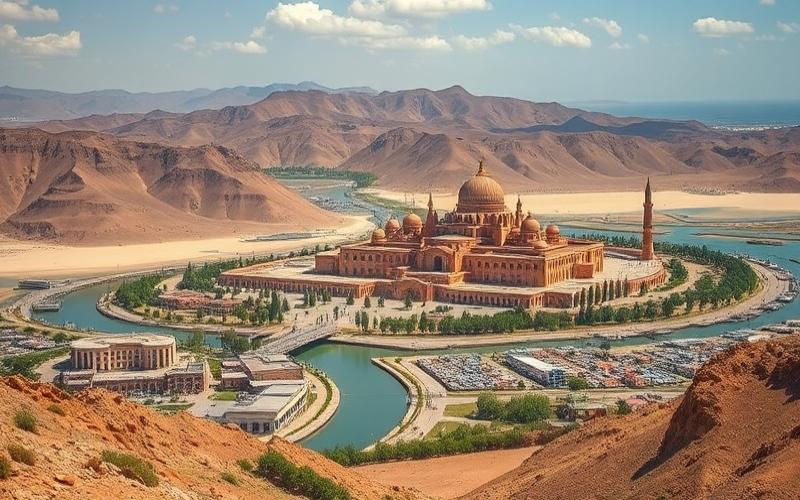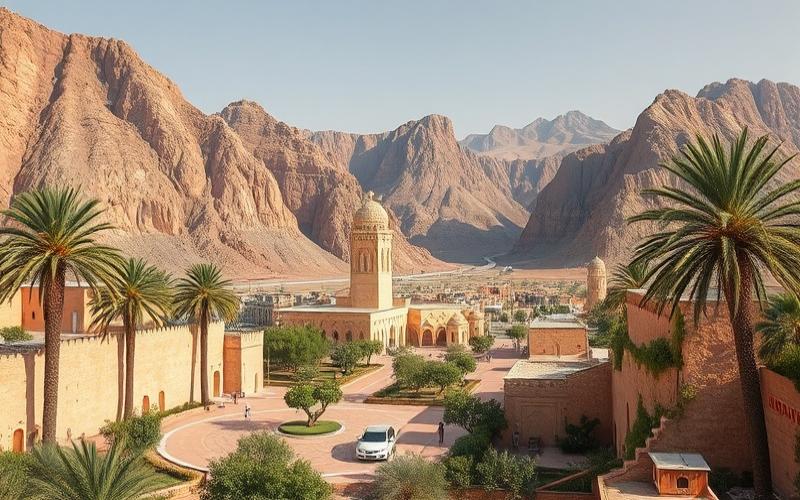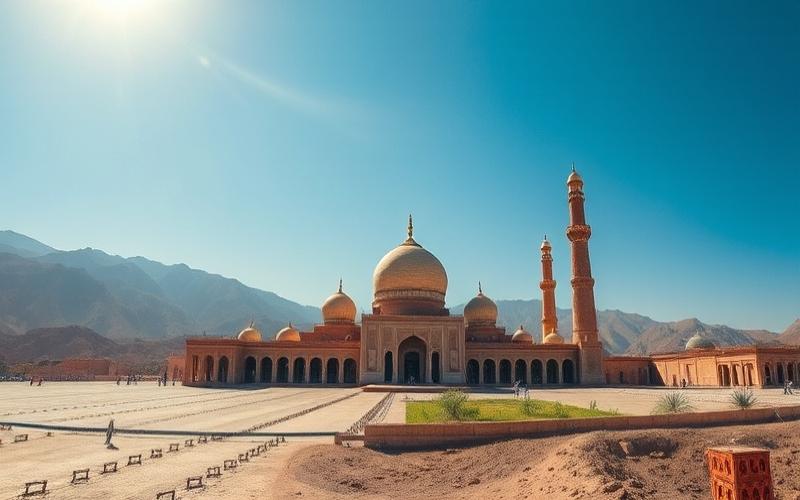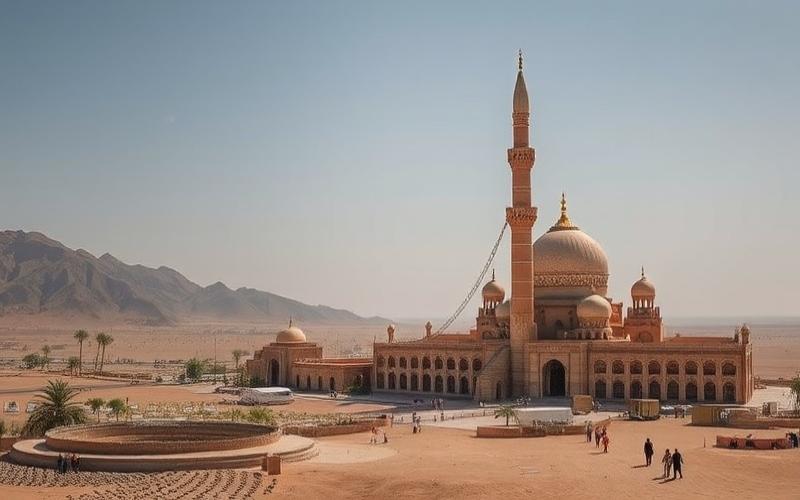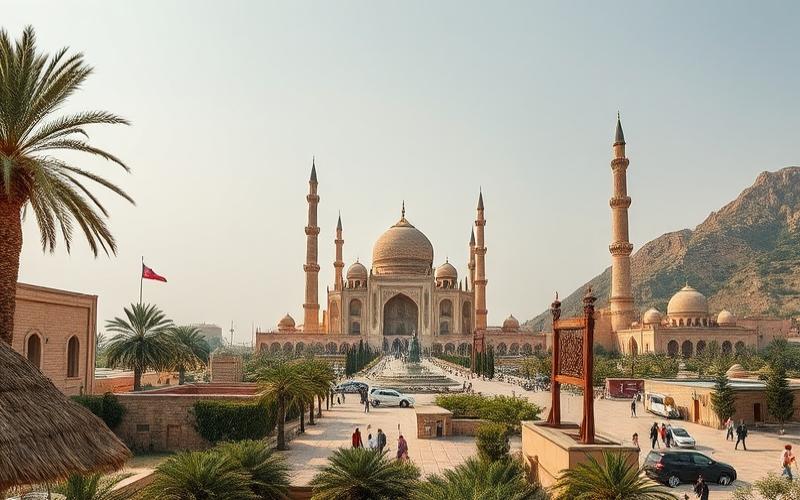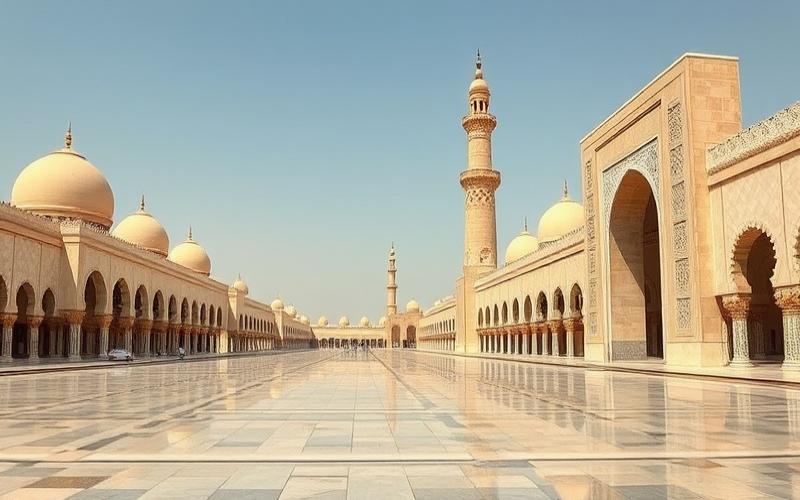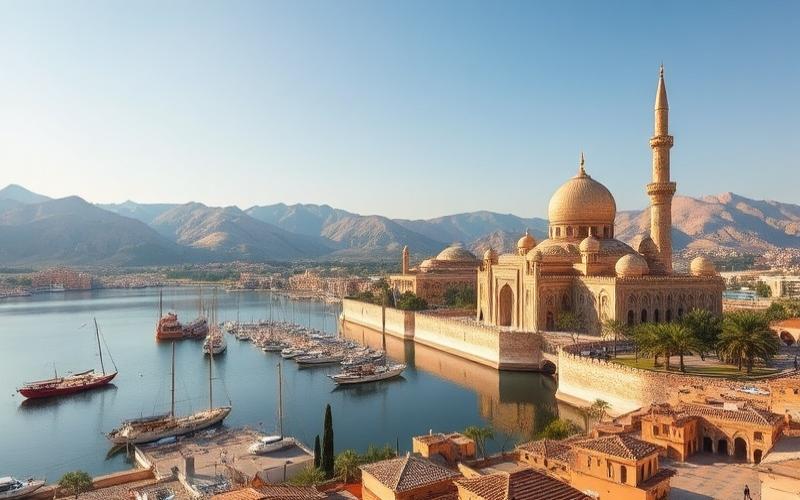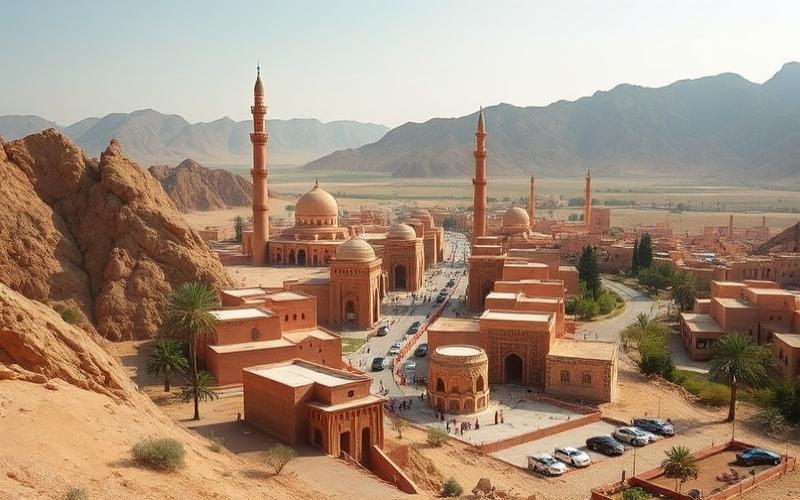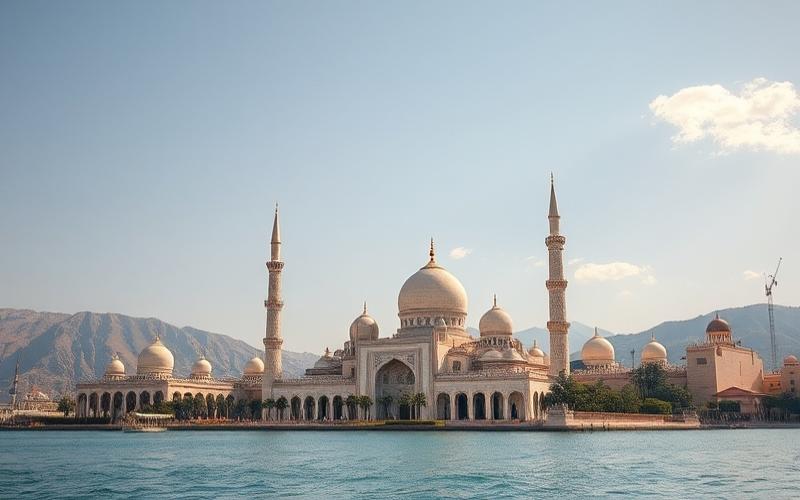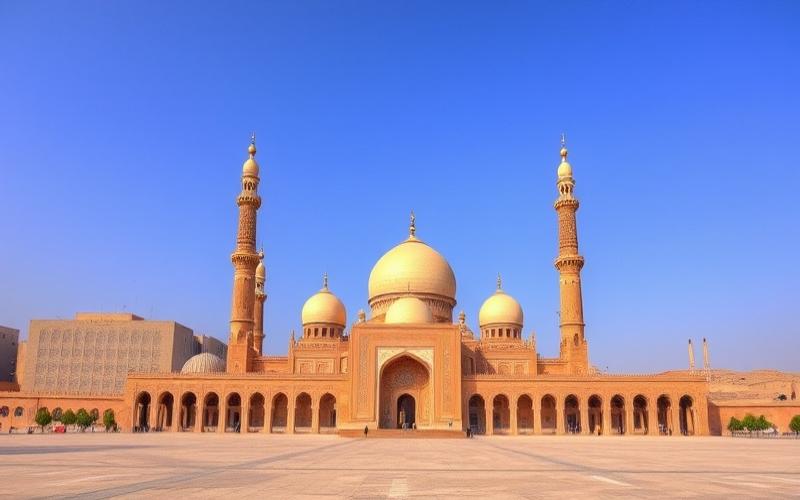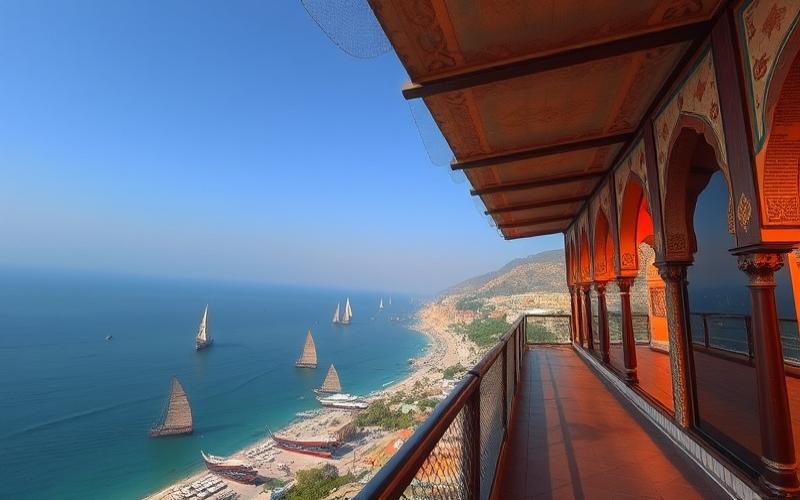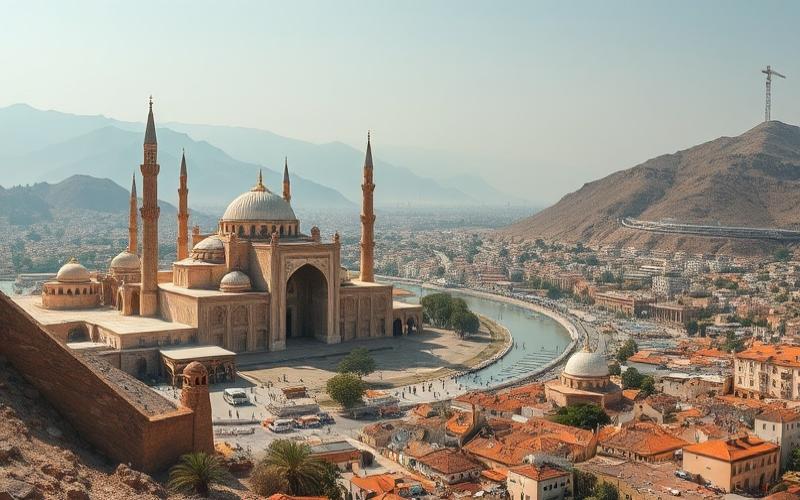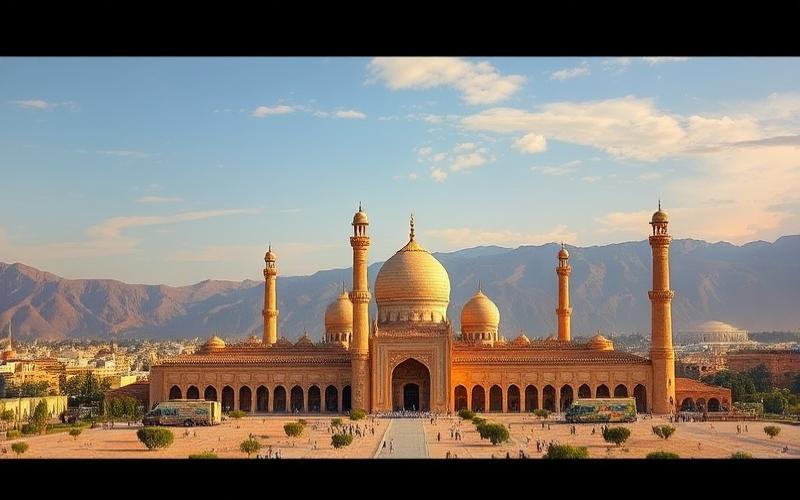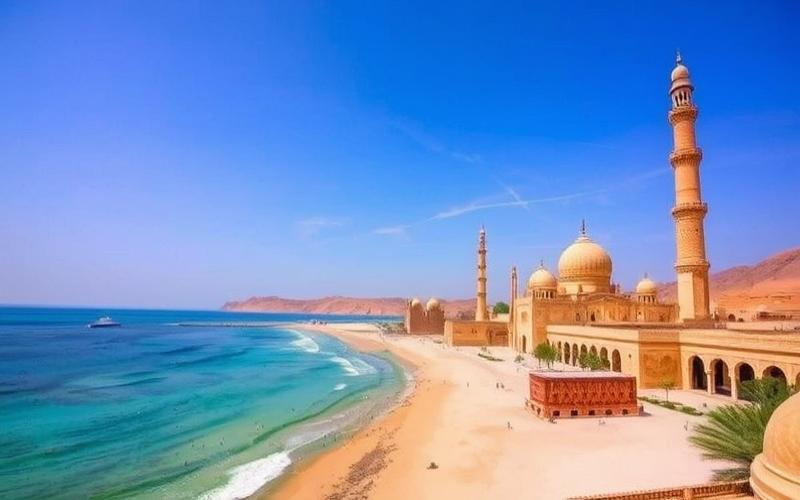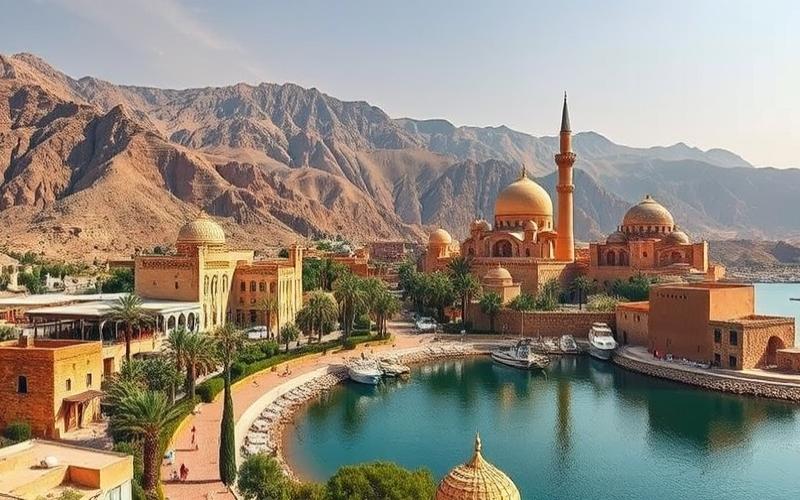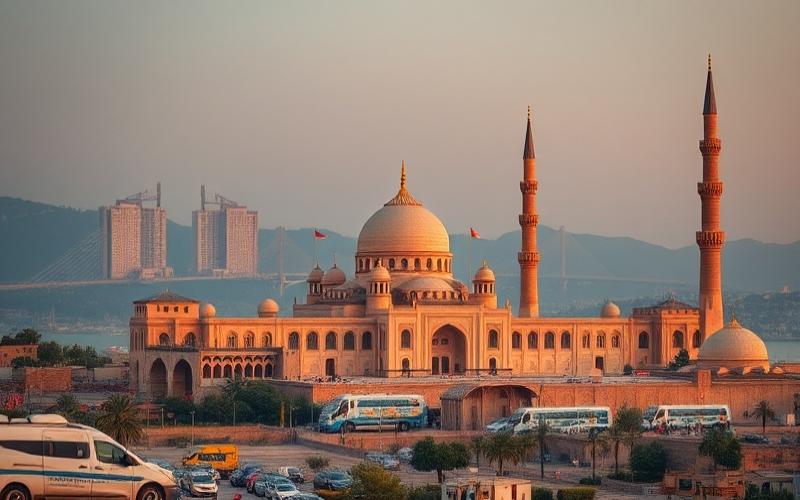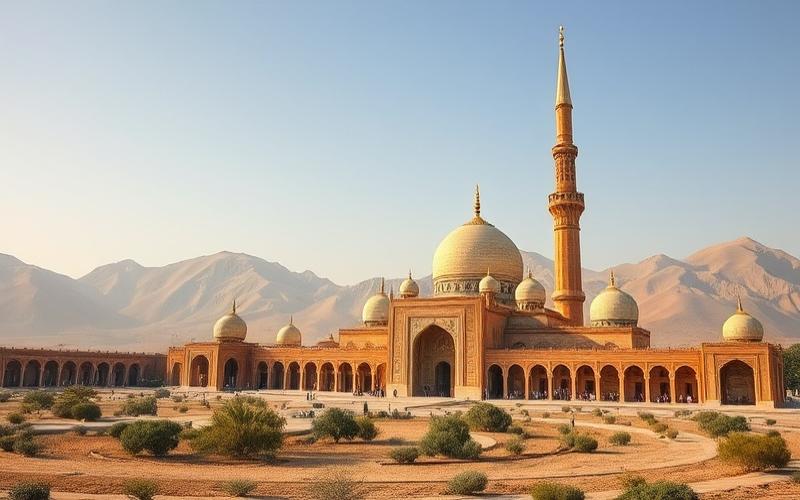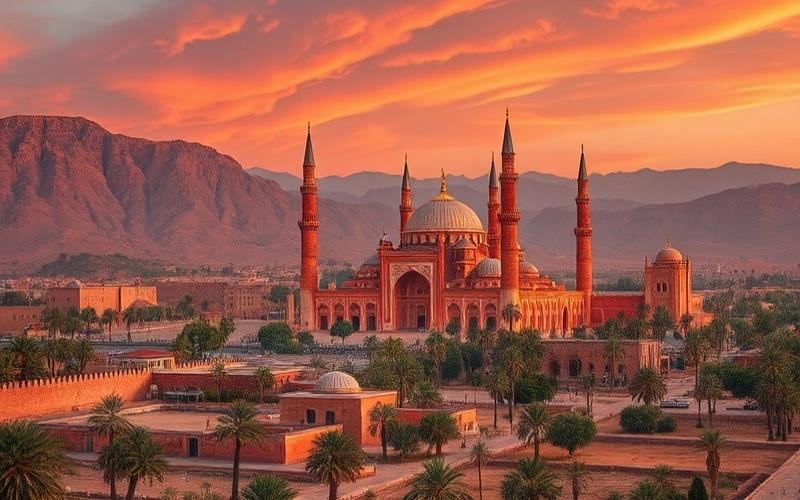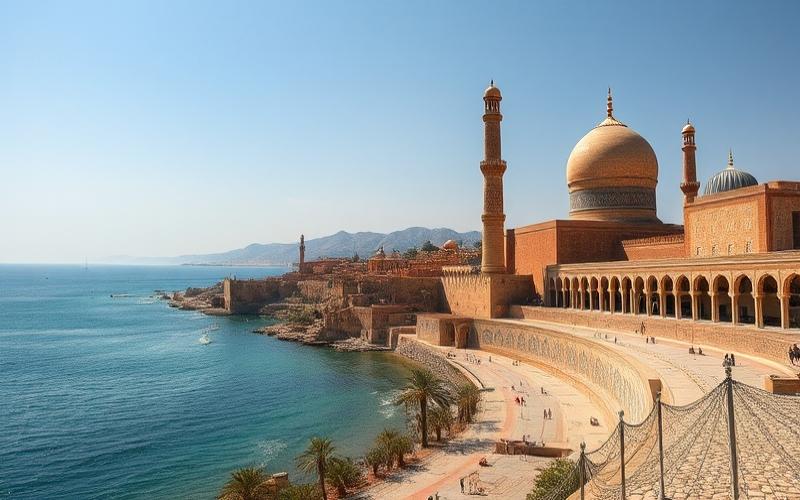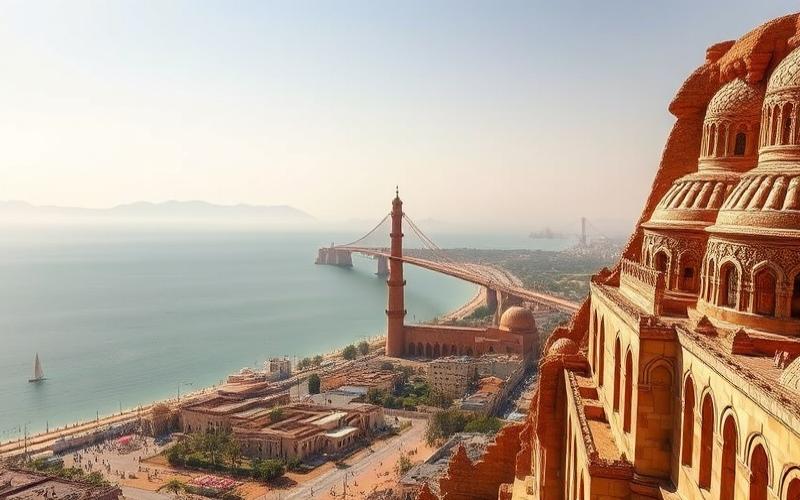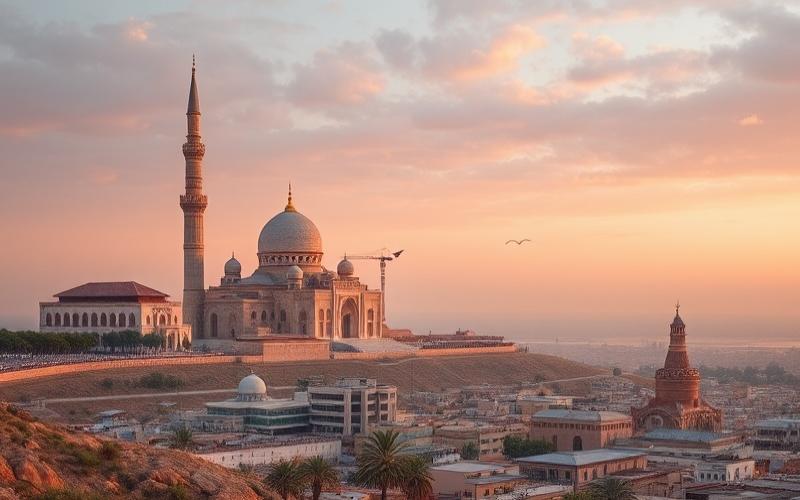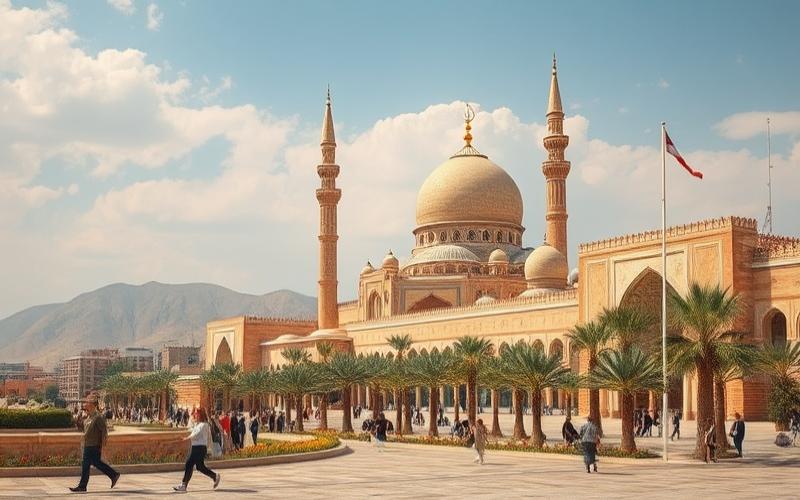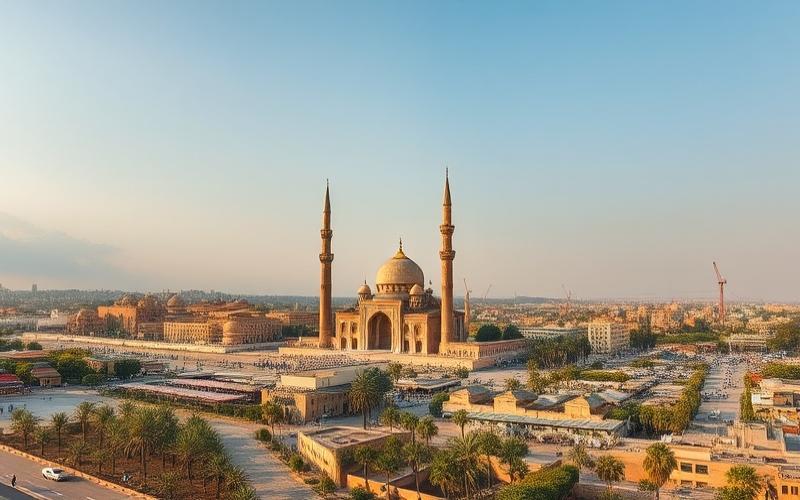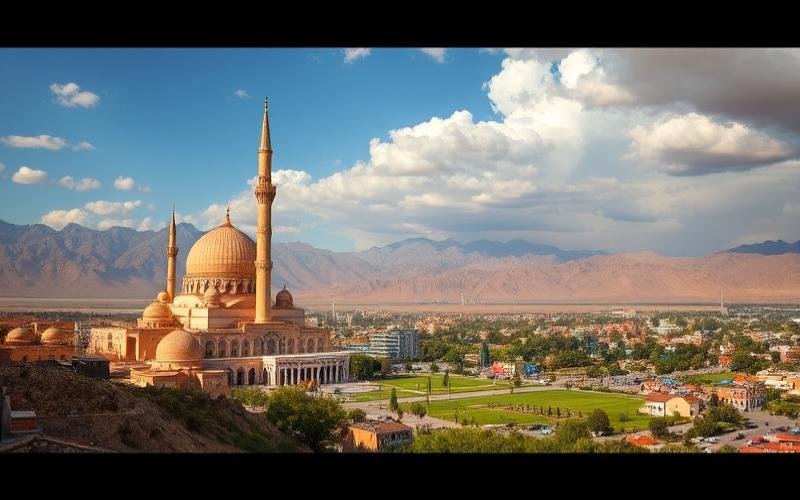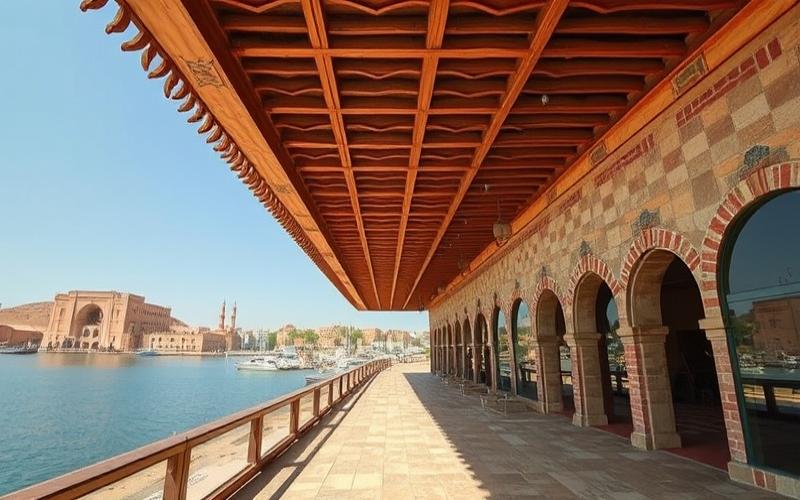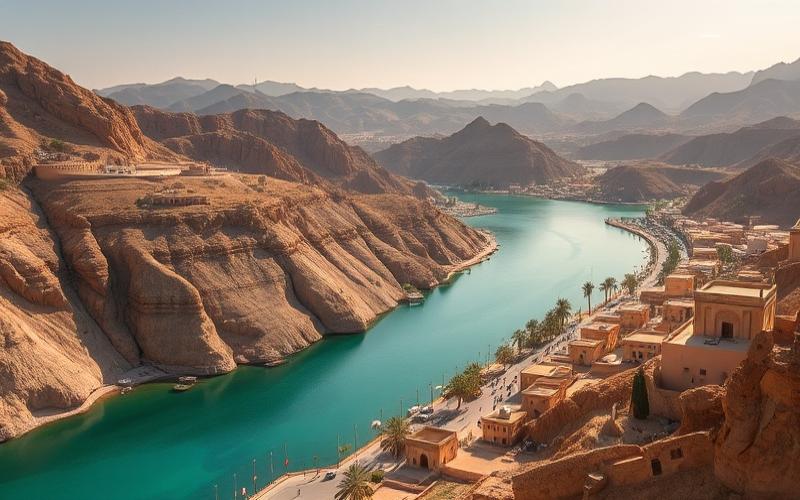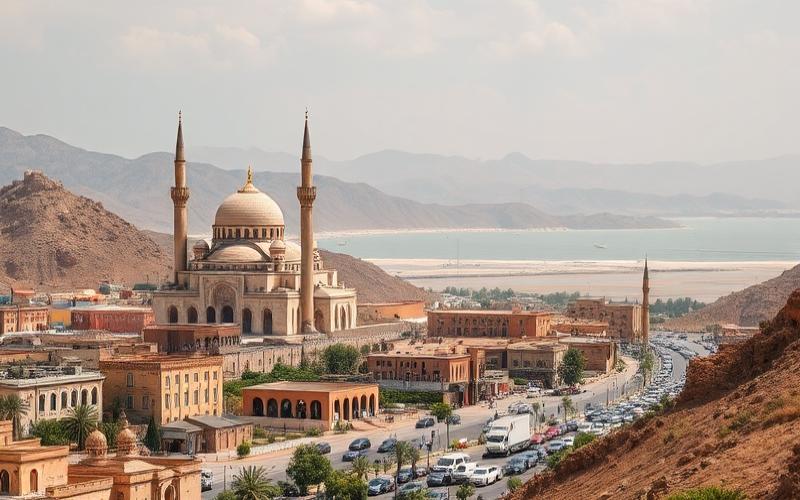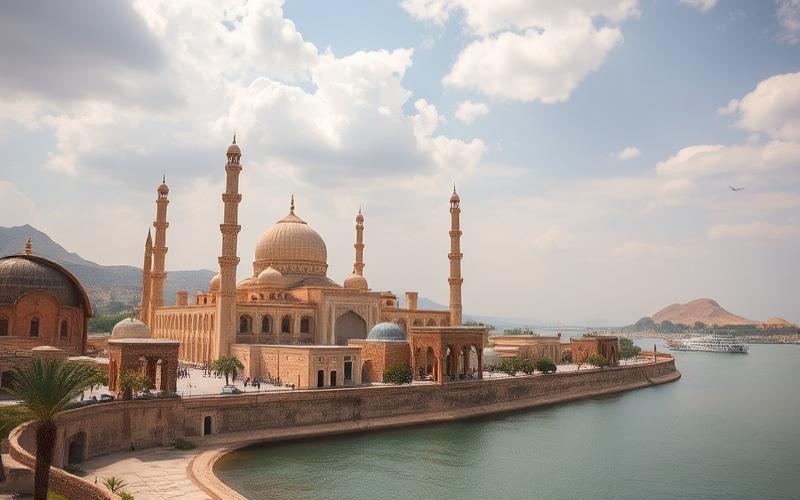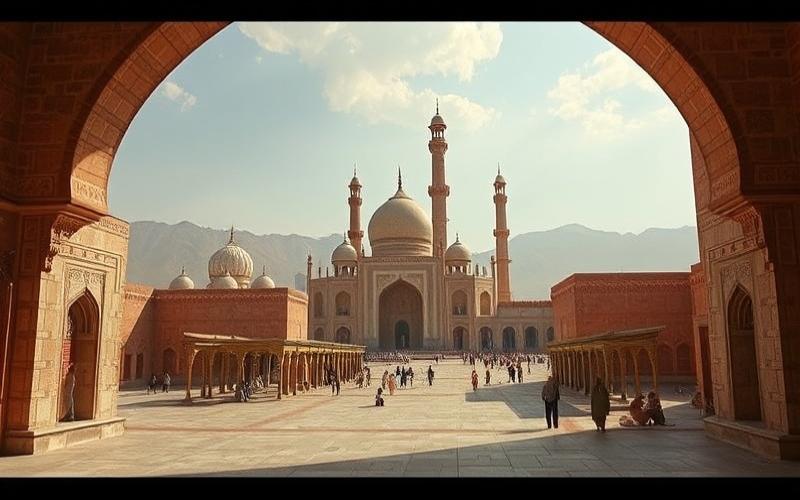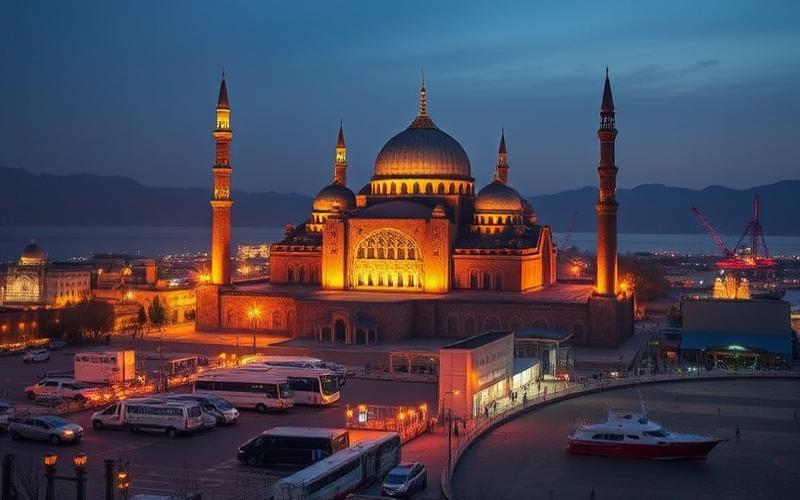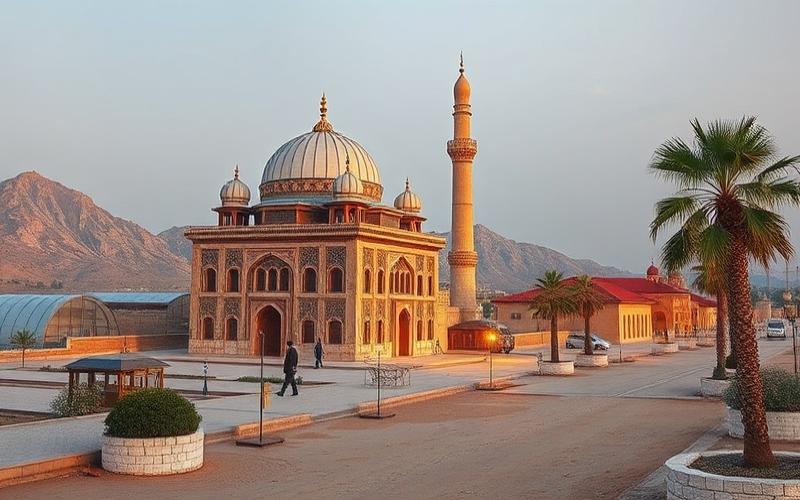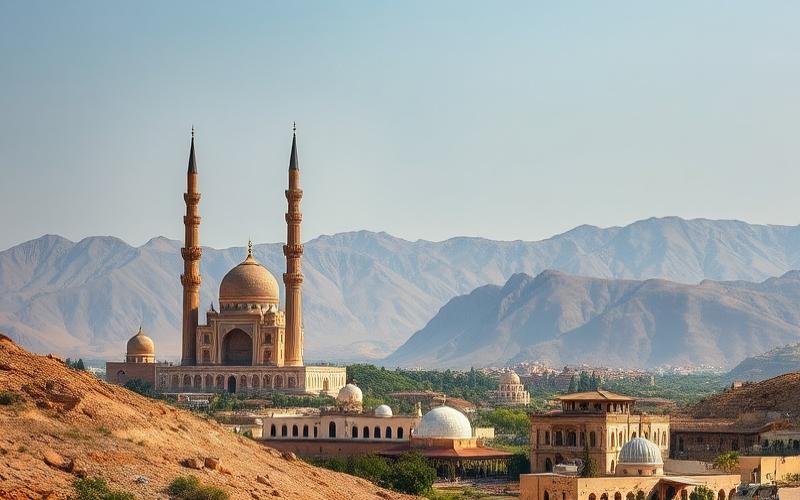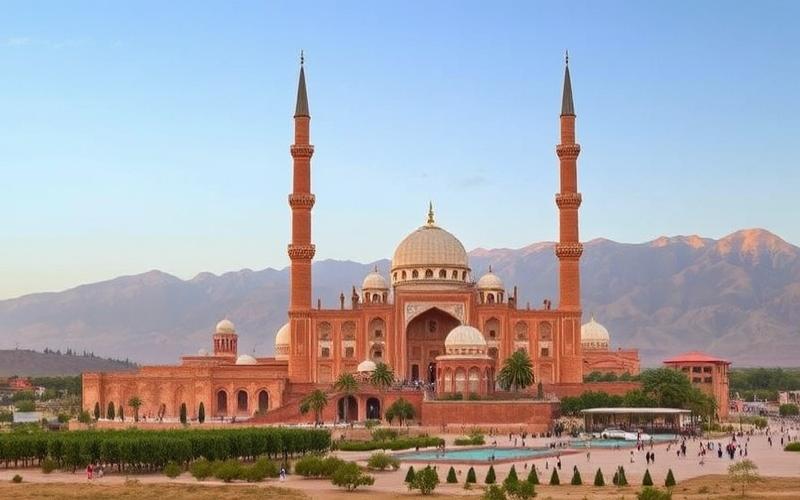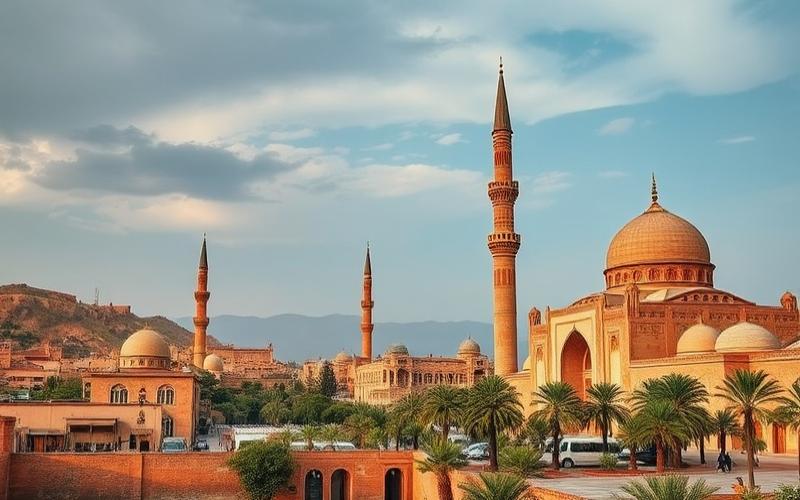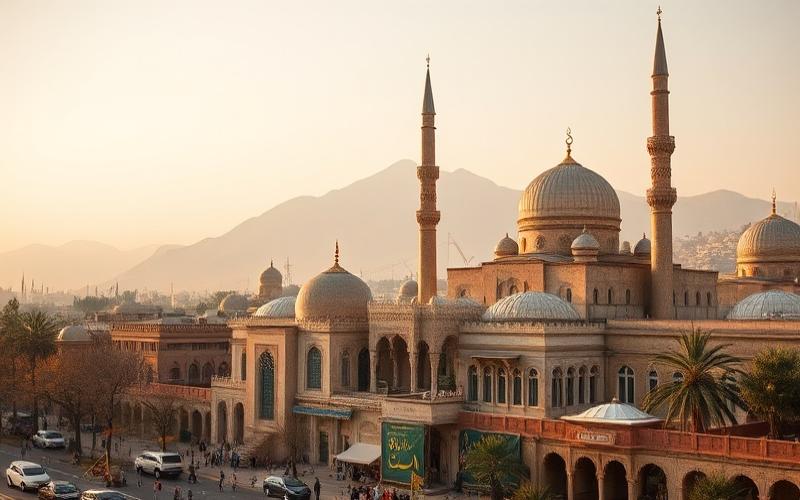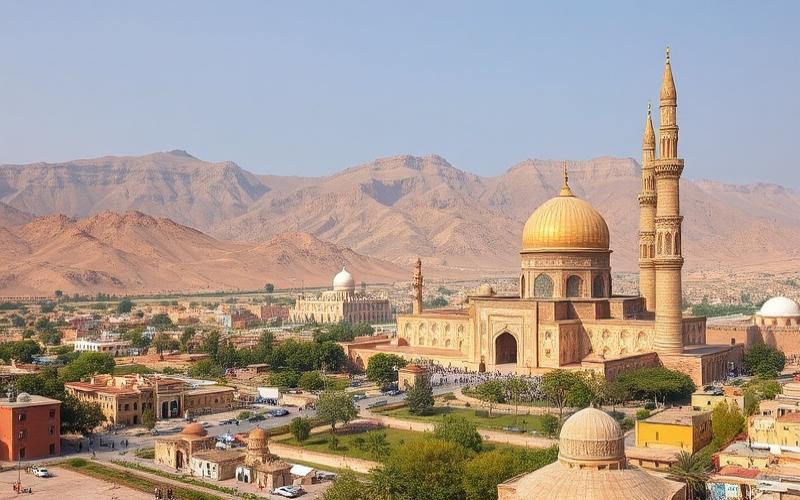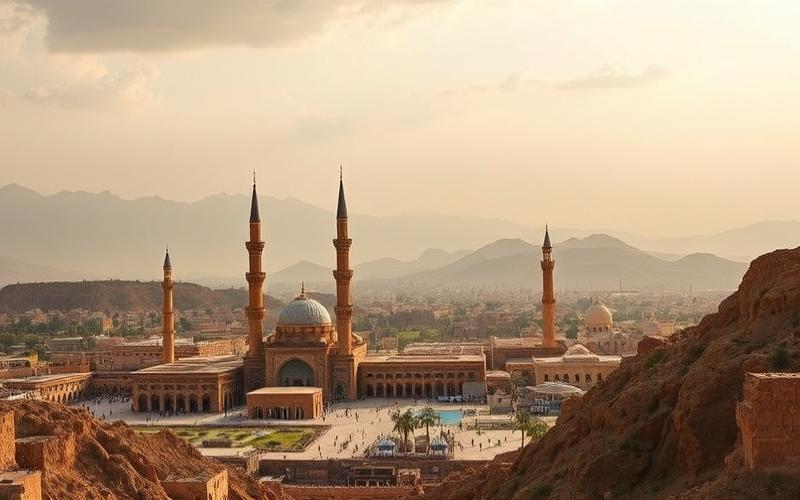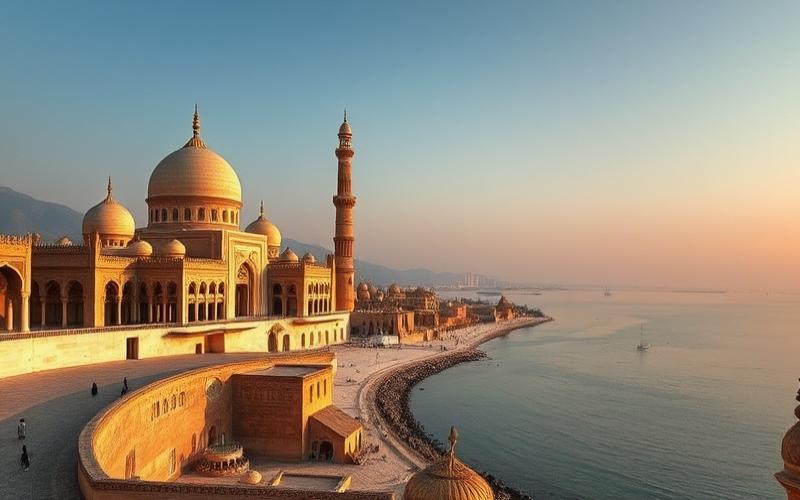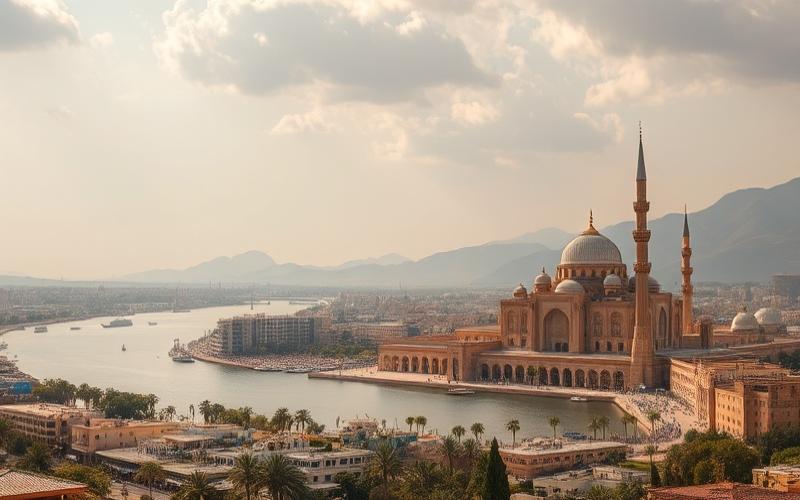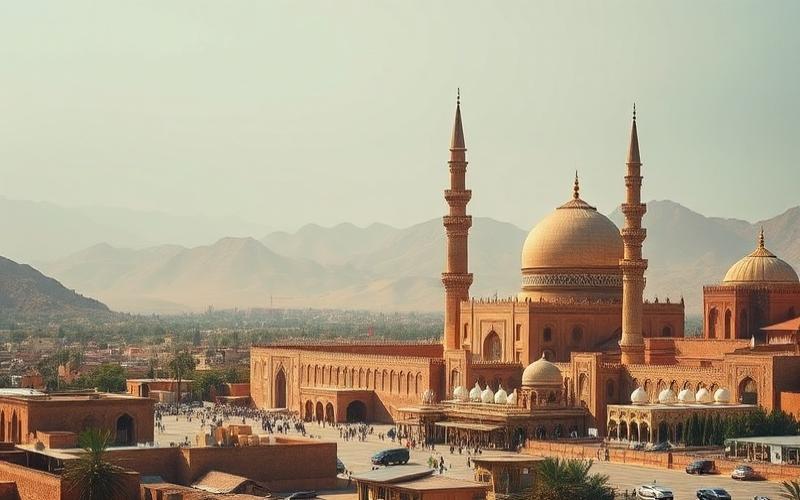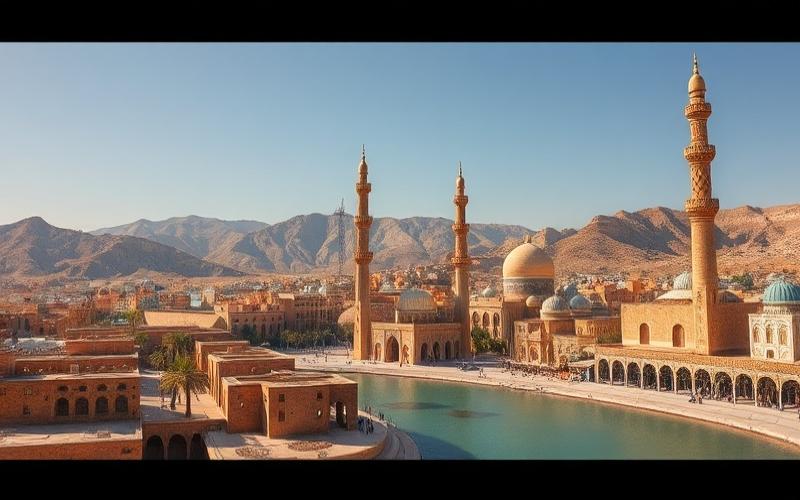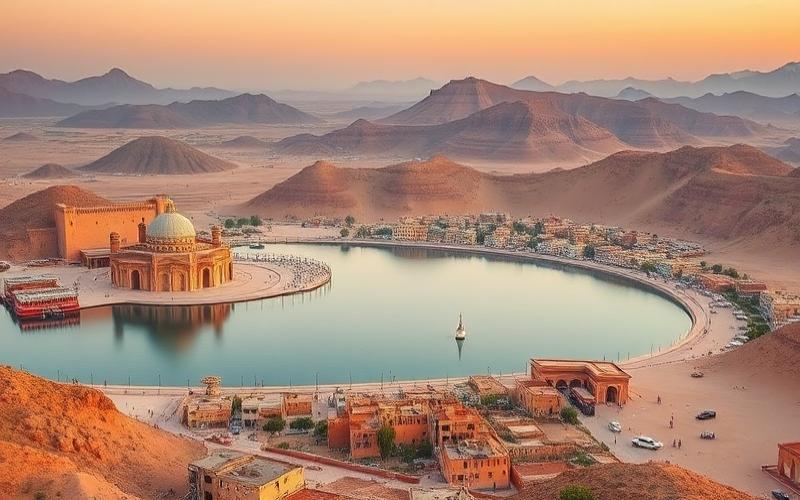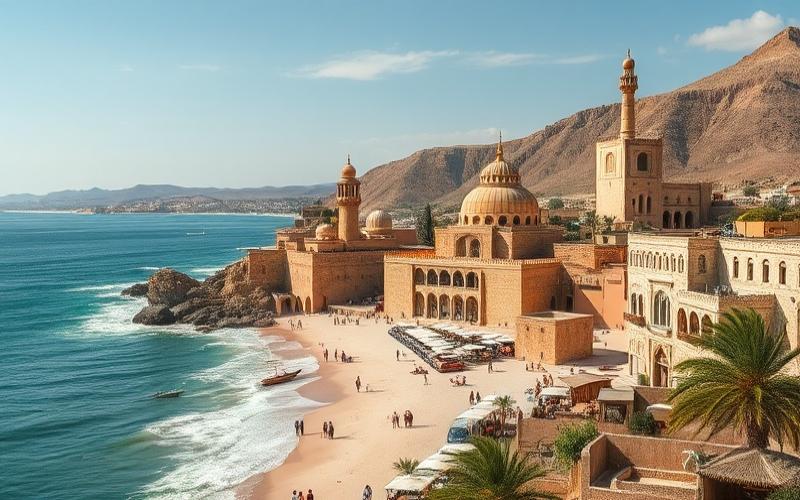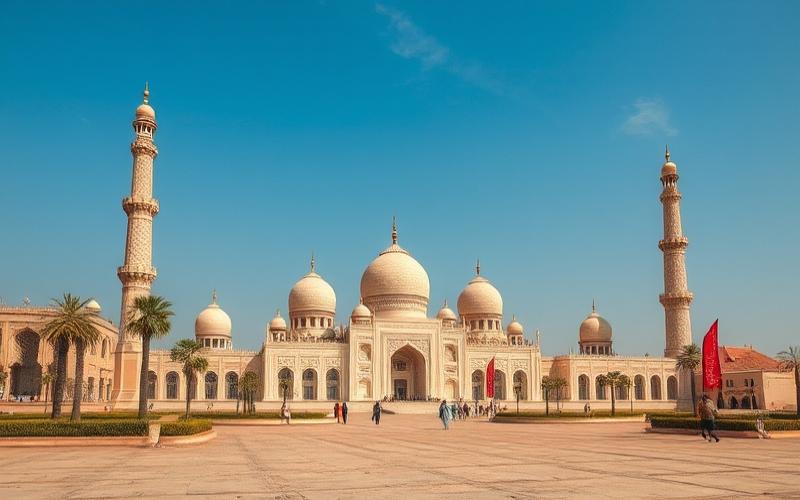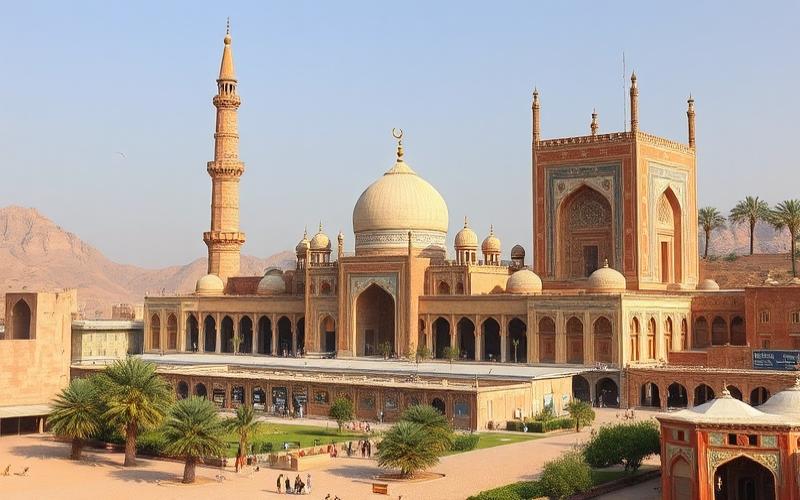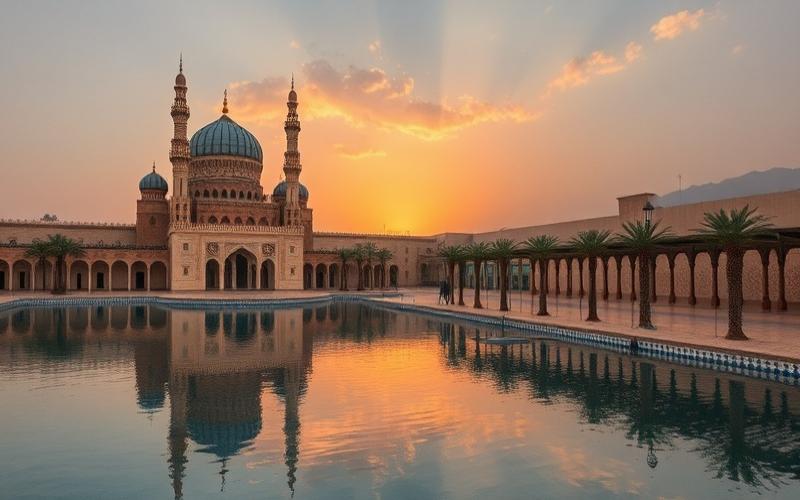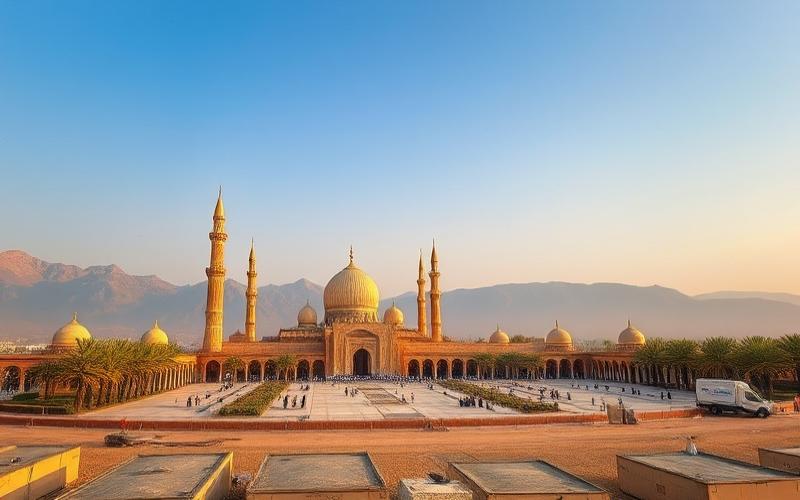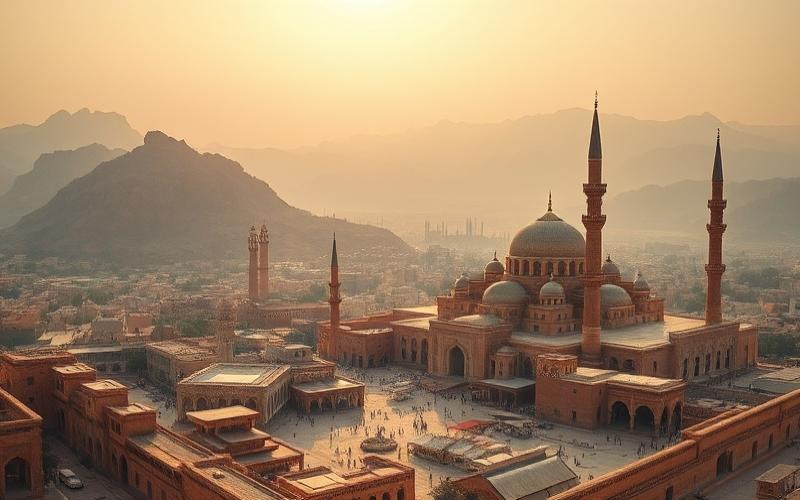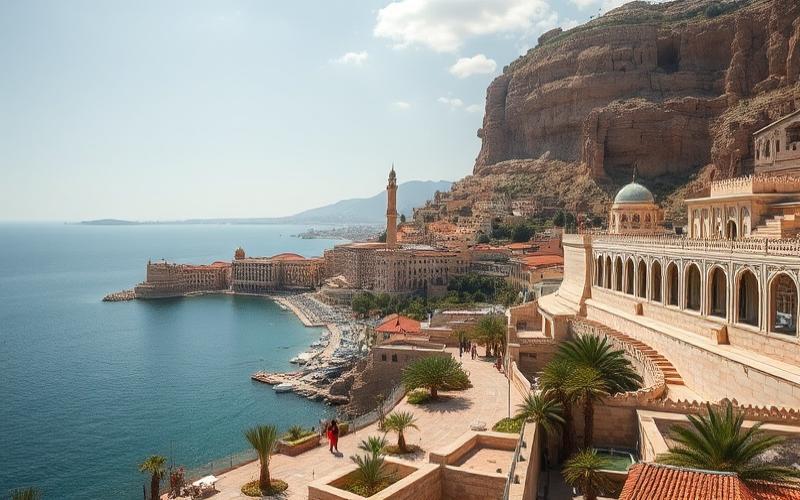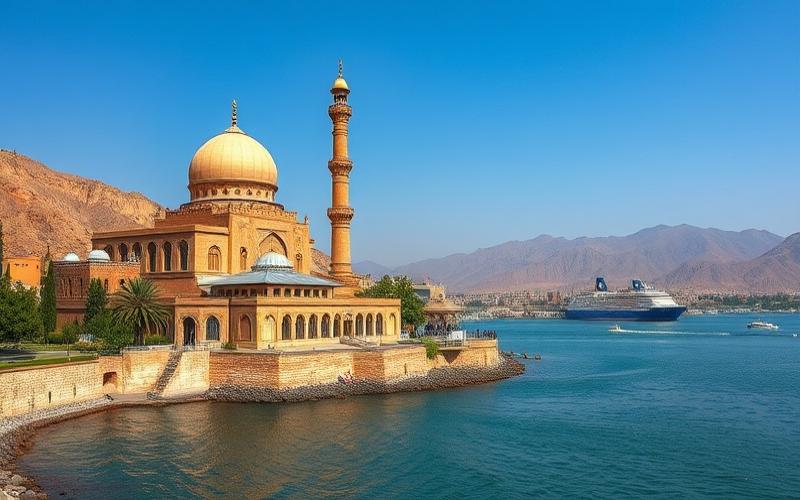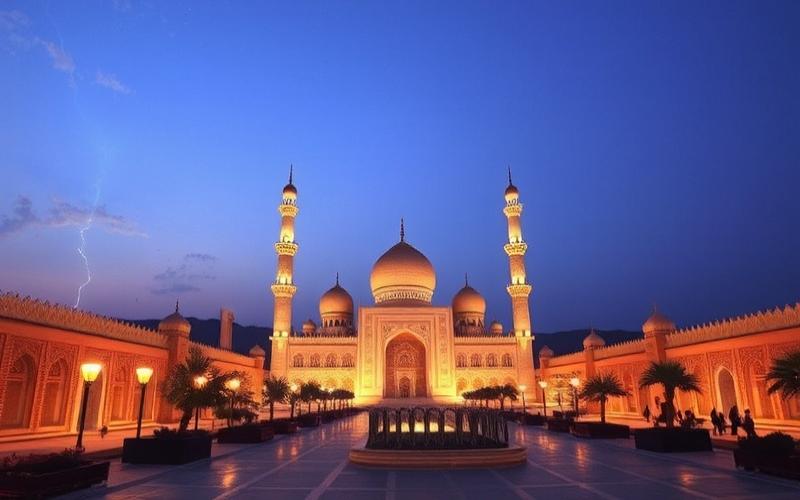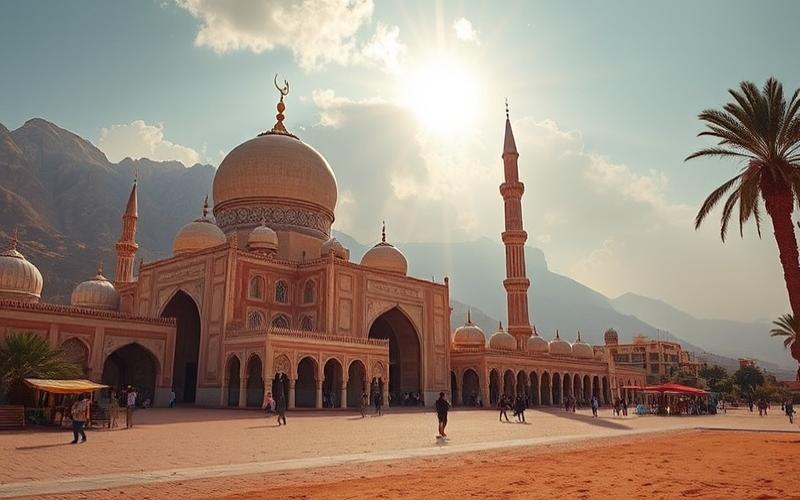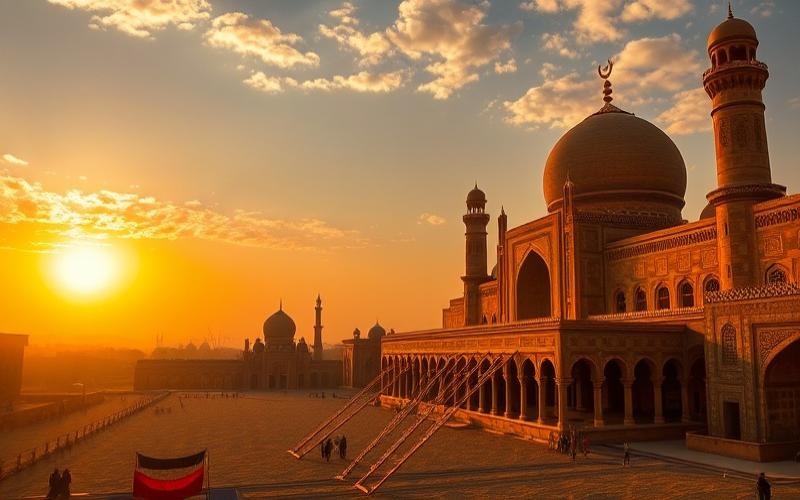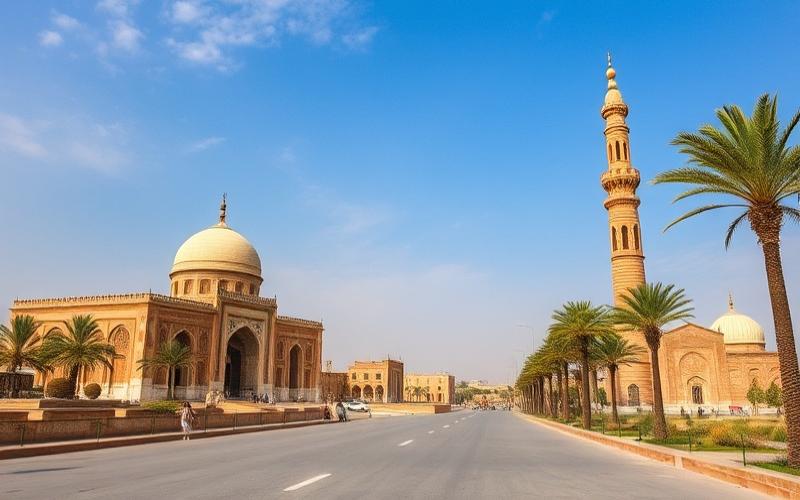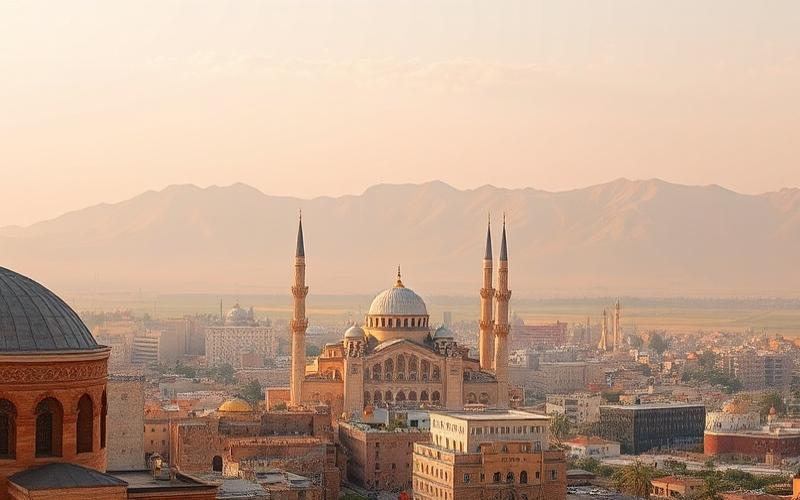
 Published on and written by Cyril Jarnias
Published on and written by Cyril Jarnias
Bahrain, often considered a hidden gem of the Persian Gulf, offers a particularly attractive setting for real estate investment, thanks to its significant tax advantages and strategic position at the heart of the region.
With a booming economy and an ever-evolving real estate market, the country offers unique tax incentives, including no personal income tax and the ability to transfer funds without restrictions.
However, these enticing opportunities come with certain regulatory restrictions that potential investors must be aware of to successfully navigate this dynamic market.
Whether you’re a seasoned investor or a newcomer to the international real estate scene, understanding Bahrain’s tax and regulatory landscape is essential to making the most of the opportunities available.
Tax Benefits for Real Estate Investment in Bahrain
Bahrain offers major tax incentives to encourage real estate investment, including:
- Exemption from transfer and registration fees on certain types of property acquisitions in free zones.
- Complete absence of income tax for individuals and companies (excluding the oil/gas sector).
- No tax on capital gains, wealth, or corporate payments.
- Ability for foreign investors to hold 100% of the capital in most real estate sectors, with no requirement for a local partner.
These measures translate concretely into:
- Simplified property purchase: no taxes on each transaction or resale, making the total cost significantly lower than in most other Gulf countries.
- Streamlined property management: no recurring taxation (property tax or rental income tax), which significantly improves net profitability for all types of investors.
Summary Table of Key Tax Benefits
| Tax Benefit | Direct Impact |
|---|---|
| No corporate tax | Increased profitability |
| No income tax | Maximized net income |
| Exemption from transfer fees/VAT | Reduced initial cost |
| 100% foreign capital ownership | Strategic and operational freedom |
Observed Impacts on the Bahraini Real Estate Market Include:
- Continuous growth in transaction volume and gradual price increases.
- Enhanced stability thanks to transparent regulation (RERA) protecting local/international investors.
- Strong attractiveness for foreign capital seeking regional tax optimization.
Recent Examples Illustrating These Benefits:
The Waterbay project, developed with support from the Mumtalakat fund, attracted an international clientele thanks to high rental yields (6–8%) made possible by the near-total absence of tax deductions.
Developments like Bahrain Financial Harbour or Riffa Views directly benefited from the favorable regime granted to foreign investments. These projects actively contribute to Bahrain’s competitive regional positioning against Dubai and Doha.
In summary, these tax incentives not only allow for streamlined management but also superior returns compared to other Gulf real estate markets, thus consolidating Bahrain as a prime destination for any investor looking to optimize their tax situation while diversifying their real estate portfolio.
Good to Know:
The absence of income tax and exemptions from transfer fees make Bahrain a preferred destination for real estate investors, with recent projects like the Bahrain Bay development benefiting from these incentives. The reduction of corporate tax for foreign investments stimulates growth and strengthens the market’s attractiveness, thus facilitating property acquisition and management for local and international investors.
Understanding Real Estate Purchase Regulations in Bahrain
Main Laws and Regulatory Bodies
- Law No. 27 of 2017: allows full foreign ownership in specific areas known as “freehold” zones.
- RERA (Real Estate Regulatory Authority): oversees transactions, brokers, and regulatory compliance.
- Survey and Land Registration Bureau (SLRB): registers transactions and property transfers.
Geographical Areas Accessible to Foreigners
| Area | Types of Accessible Properties | Specific Features |
|---|---|---|
| Juffair | Apartments, residences | Expatriate neighborhood, nightlife |
| Amwaj Islands | Villas, apartments, luxury | Seafront, private beaches |
| Seef District | Condos, offices, commercial properties | Business center, shops |
| Durrat Al Bahrain | Villas, apartments | Residential, seaside |
Outside these areas, foreigners can only lease for a maximum period of 99 years.
Property Categories and Limitations
- Residences, commercial and investment properties: accessible to foreigners in designated areas.
- Land: generally accessible in the same areas, but some local restrictions may apply (especially for strategic zones or agricultural/industrial use).
- Non-designated areas: purchase prohibited, only long-term lease (99 years) is possible for foreigners.
Procedures and Required Documents
| Document | Description and Role |
|---|---|
| Valid passport | Mandatory, must be up to date |
| Residence visa (if applicable) | Required for residency by investment (min. 50,000 BHD) |
| Bank statements | Financial capacity, last 6 to 12 months |
| Letters of credit or proof | Origin and stability of funds |
| Real estate sale agreement | Notarized contract, validated by competent authorities |
| Property title | Issued after registration with SLRB |
| Permit from competent ministry | Sometimes necessary depending on location |
| CID/CPR certificate | Centralized identification (Central Informatics Organization) |
| Health insurance | Mandatory for residence permit |
| Clean criminal record | Required for certain residence permits |
| Proof of address | Utility bill or certificate for bank/administrative verification |
Steps in the Purchase Process
- Select a property in an authorized area
- Sign a sales contract with a deposit (~10%)
- Legal checks and obtaining financing if necessary
- Title transfer to SLRB
- Payment of registration fees and receipt of property certificate
Tax Implications and Associated Fees
| Type of Tax or Fee | Rate or Cost |
|---|---|
| Registration fees | 2% of purchase price |
| Notary/legal fees | 0.5 to 1% |
| Capital gains tax | None |
| Annual property tax | None |
| Tax on rental income | None (for individuals) |
| VAT (new commercial sales) | 5% (only applies to off-plan or new property sales) |
Bahrain is one of the most favorable countries in the Gulf for real estate taxation.
The advantageous tax situation can positively influence investment decisions by reducing recurring costs and deductions on transactions.
Regional Differences and Exceptions
- Only freehold zones are accessible to foreigners.
- Some strategic or government-designated, agricultural, or military zones remain inaccessible.
- Special rules may apply for land purchase, requiring additional authorization.
- Regulations may evolve according to urban development policies or national security.
Key Points to Remember
- Consulting a local legal advisor is highly recommended to ensure compliance and anticipate regional specificities.
- Procedures and requirements may vary depending on the exact location of the property and the chosen property category.
Special Feature
To invest in Bahrain, it is essential to target freehold areas, prepare a strong financial file, anticipate acquisition costs, while considering potential local restrictions or regulatory changes.
Good to Know:
It is crucial to know that foreigners can only buy residential properties in designated areas in Bahrain, such as Amwaj Islands and Durrat Al Bahrain, and that the acquisition of commercial properties is subject to specific restrictions. Real estate transactions often include stamp duties, which can significantly influence the total cost of the investment.
Opportunities to Buy a House in Bahrain
Bahrain presents several attractive factors for property buyers, including its economic stability and efforts to diversify the economy. The country has implemented initiatives to attract foreign investment, which contributes to its appeal for real estate investors. Popular residential areas include Diyar Al Muharraq, known for its luxury properties, and established neighborhoods like Manama, which offer a good return on investment.
Tax incentives are also a major asset. Bahrain does not levy real estate capital gains tax, and expatriates can benefit from freehold ownership regimes. This makes the Bahraini real estate market particularly attractive to foreign investors.
In terms of property prices, the average cost per square meter in the city is about €2,436.3, with possible fluctuations between €2,160.96 and €2,542.22 depending on the time of year. The luxury real estate market is growing, with a forecasted 6.11% compound annual growth rate (CAGR).
Popular Areas
| Area | Characteristics |
|---|---|
| Diyar Al Muharraq | Luxury properties, recent development, attractive for investors. |
| Manama | Established neighborhood, offers good return on investment, central. |
| Juffair | Modern residential area, close to urban amenities. |
Tax Incentives
- Absence of real estate capital gains tax: buyers are not subject to this tax.
- Freehold ownership for expatriates: allows foreigners to own properties without major restrictions.
Practical Tips
- Legal Procedures: It is essential to consult a local lawyer to ensure all formalities are respected.
- Financial Services: Local banks offer mortgage loans tailored to foreign buyers.
- Property Search: Use online real estate platforms to identify available properties and their prices.
Good to Know:
In Bahrain, the absence of real estate capital gains tax and freehold regimes for expatriates make purchasing attractive, particularly in emerging areas like Diyar Al Muharraq, promising a good return on investment thanks to price growth.
The Impact of Restrictions on Agricultural Land Investments in Bahrain
Main Legal and Regulatory Restrictions on Agricultural Land Investments in Bahrain:
- Foreign freehold ownership prohibited: Foreigners, whether residents or non-residents, generally cannot acquire agricultural land in freehold.
- Leasing possible under strict conditions: Foreign investment is allowed through leasing of public land, mainly via state-organized tenders. These leases are governed by specific administrative requirements (registration as a farm operator with the competent ministry, proof of minimum financial capacity, absence of other active contracts).
- Restrictions in rural areas:
- Prohibition of industrial or tourist construction without special authorization
- Limitation on building density and heights
- Strict obligation to preserve the agricultural purpose of the land
| Status | Freehold Purchase | Possible Lease |
|---|---|---|
| Bahraini citizen | Yes | Yes |
| Foreign resident | No (except exceptions) | Yes (under conditions) |
| Non-resident | No | Yes (under conditions) |
Influence on Attractiveness for Foreign Investors in Agriculture
- The restriction on freehold ownership significantly reduces the appeal for foreign investors looking to commit long-term or develop land assets.
- The near-exclusive reliance on leasing limits their ability to value and secure their investment in the long term.
- Complex administrative procedures and state control make Bahrain less competitive compared to countries offering more direct acquisition.
Political, Economic, or Environmental Justifications
- Political:
- Preservation of national control over strategic land resources
- Protection against foreign speculation that could threaten food sovereignty
- Economic:
- Guarantee that income from land remains mostly local
- Incentive for agricultural development led by national actors
- Environmental:
- Maintenance of controlled agricultural use and preservation of rural ecosystems
- Limitation of risk related to abrupt changes in land use
Impact on the Local Agricultural Real Estate Market and Prices
Main Consequences:
- Low liquidity in the agricultural land market due to few potential buyers outside Bahraini citizens
- Relative stability or even stagnation of agricultural prices due to low international competition
Prices can nevertheless increase temporarily during attractive public tenders.
Concrete Examples of Affected Investors or Projects
List illustrating some typical cases:
- Foreign agri-food companies that had to forego direct purchase and opt only for long-term leasing from the state.
Common fictional example: international company participating in a public tender without the legal possibility of conversion to freehold after contract expiration.
Legislative Reforms Considered or Proposed
| Proposed Reform | Objective | Current Status |
|---|---|---|
| Facilitate leasing access for foreigners | Stimulate production | Under debate |
| Strengthen legal security of transactions | Clarify rights | Recent initiatives |
| Partially open purchase to companies | Increased attractiveness | Not yet adopted |
Debates exist particularly around:
- A partial opening to certain foreign legal entities under conditions,
- Enhanced security to attract more international capital while maintaining state control.
Future Implications Depending on Evolution of Restrictions
If eased:
- Likely increase in direct investments in the sector,
- Greater dynamism in the land market,
- Potential rapid but controlled price increase
If tightened:
- Maintenance or even increase in international disinterest,
- Limited but real risk of sectoral stagnation outside local initiatives,
Future economic development will therefore largely depend:
on the actual degree of openness applied to non-Bahraini investors in this strategic sector.
Good to Know:
Bahrain imposes strict restrictions on foreign ownership of agricultural land, thus limiting attractiveness for foreign investors, although legislative reforms are under consideration to potentially ease these rules in the future. These restrictions, motivated by environmental and economic concerns, have led to inflation in local land prices, directly impacting foreign investor projects such as the Al-Bustan agro-industrial initiative.
Disclaimer: The information provided on this website is for informational purposes only and does not constitute financial, legal, or professional advice. We encourage you to consult qualified experts before making any investment, real estate, or expatriation decisions. Although we strive to maintain up-to-date and accurate information, we do not guarantee the completeness, accuracy, or timeliness of the proposed content. As investment and expatriation involve risks, we disclaim any liability for potential losses or damages arising from the use of this site. Your use of this site confirms your acceptance of these terms and your understanding of the associated risks.

